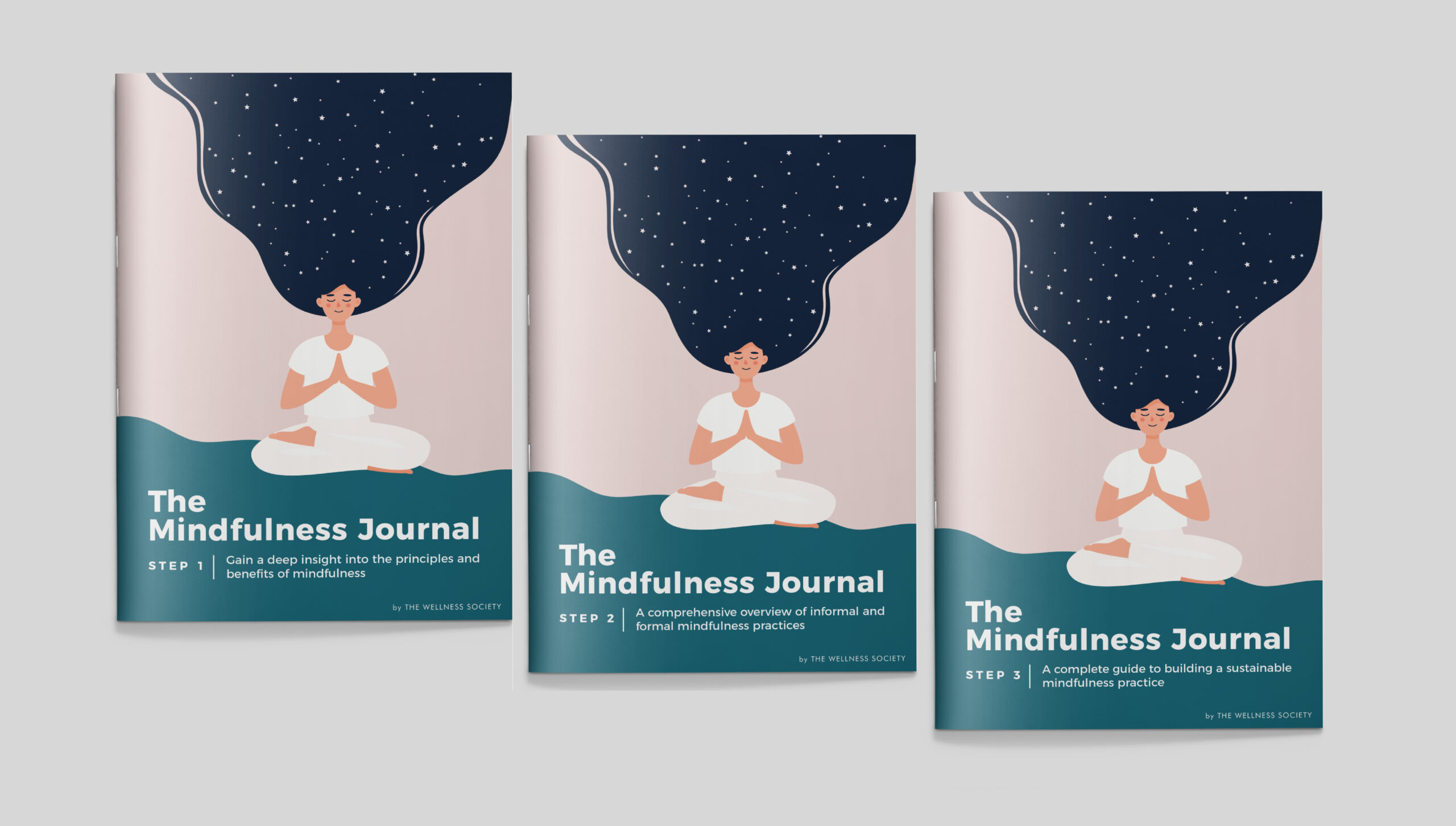Dialectical Behavioural Therapy (DBT), developed in the 1980s by Dr. Marsha Linehan and her colleagues, is often considered a modified version of cognitive behavioural therapy (CBT), belonging to the "third wave" of CBT. The third wave builds upon traditional behaviour therapy by incorporating mindfulness and acceptance strategies into its framework.
DBT involves four main modules:
- Mindfulness
- Distress Tolerance
- Emotion Regulation
- Interpersonal Effectiveness
What Is Radical Acceptance?
Radical acceptance is typically covered in the distress tolerance module of DBT. When confronted with a problem, DBT suggests there are five potential ways to respond:
- Solve the problem or make a change
- Change your emotion about the problem
- Accept/tolerate the problem
- Stay miserable
- Make it worse
When immediate problem-solving or changing our emotions isn't feasible, DBT emphasises number three, acceptance.
Radical acceptance involves acknowledging the painful situation and accepting it without resistance.
The philosophy underlying this approach is rooted in the understanding that while pain is often an unavoidable part of life, suffering is a choice. By choosing to accept the reality of a situation, we reduce unnecessary mental suffering.
The practice of radical acceptance aligns with the mindfulness principles in DBT, emphasizing living in the present moment and cultivating a non-judgmental awareness of our experiences.
Willfulness Versus Willingness in DBT
In DBT, trying to change a situation that cannot be changed is referred to as a form of willfulness.
Radical acceptance is introduced as a skill to counteract willfulness, promoting a more open and accepting mindset.
Willfulness refers to a state of mind or a set of behaviours characterized by stubbornness and resistance. It involves an insistence on having things go a certain way, even when it may be impractical or impossible.
Willingness, on the other hand, involves an open and accepting attitude toward the present moment, a readiness to engage in effective coping strategies, and a recognition that certain things are outside of our control.
|
Willfulness |
Willingness |
|
|
Attitude Towards Reality |
Resists and struggles against reality, often desiring it to be different. |
Acknowledges and accepts reality as it is, without necessarily approving or disapproving of it. |
|
Flexibility |
Rigid and fixed in expectations, reluctant to consider alternative perspectives. |
Adaptable and open to various outcomes. Willing to adjust expectations based on changing circumstances. |
|
Response to Uncertainty |
Experiences discomfort and anxiety in the face of uncertainty, seeking immediate resolution. |
Embraces uncertainty as a natural part of life. |
|
Decision-Making |
Decision-making influenced by a desire for immediate change or avoidance of discomfort. |
Empowered to make decisions based on available information and the present moment. |
|
Emotional Regulation |
May experience heightened emotional distress due to resistance and struggling against reality. |
Engages in effective emotion regulation strategies, acknowledging and accepting emotions without judgment. |
|
Resilience |
May struggle with adaptability, finding it difficult to bounce back from challenges. |
Fosters resilience by adapting to changing circumstances and bouncing back from setbacks. |
How to Practice Radical Acceptance
Radical acceptance serves as a therapeutic strategy to address willfulness by encouraging us to adopt a different approach to difficult circumstances. Here are some ways to cultivate it:
- Identify an area where you are not accepting reality and make a choice to shift your mindset.
- Recognize and let go of the need to control the situation. Understand that not everything can be controlled or changed.
- Practice mindfulness by bringing your attention to the present moment. Focus on your breath or the sensations in your body, grounding you in the here and now.
- Pay attention to any judgmental or black-and-white thoughts you’re having. Notice if you’re using labels such as "good" or "bad" and try to suspend judgment.
- Try reframing your thoughts or using uplifting statements. For example, instead of thinking "I can't stand it," try thinking "this is tough, but I can handle it" or "I accept the reality of this moment."
- Remember to turn the mind back to accepting reality when unhelpful thoughts arise.
- Notice and label the emotions you’re experiencing, acknowledging and accepting them without judgment.
- Consider what accepting the situation looks like in terms of your actions. It might involve letting go of grudges, forgiving, or making peace with the reality.
Radical Acceptance Is…
- A choice. It’s a conscious decision to approach the current reality with openness and acceptance, rather than resistance or denial.
- Dealing with what is actually happening. Instead of avoiding or ignoring the situation, radical acceptance encourages us to confront it directly.
- Coping with pain without it turning into suffering. By accepting the pain without adding layers of judgment or resistance, we minimize unnecessary mental suffering.
- Accepting things we cannot change. By accepting the unchangeable, we can redirect our energy towards more helpful responses.
Radical Acceptance Is Not…
Radical acceptance can often be interpreted wrongly depending on the situation. The following are examples of situations that radical acceptance would be unhelpful in and what this skill is not:
- Dismissing your emotions. Radical acceptance does not mean ignoring the impact of your emotions or suppressing them. It involves recognizing, accepting and allowing your emotions as they arise.
- Approving the painful event or hurt caused. Radical acceptance is not endorsing or condoning behaviour that is harmful or morally wrong. It involves acknowledging the facts without moral approval, especially in cases where there’s clear wrongdoing or harm.
- Accepting an abusive situation. Similarly, radical acceptance should never be applied in a way that justifies or tolerates abusive behaviour. Accepting the reality of an abusive situation may involve recognizing the severity of the problem and taking steps to protect oneself or others. In such cases, seeking external support and intervention is key.
Situations That May Require Radical Acceptance
Radical acceptance is often needed in situations that cannot be solved in the immediate future, or where our influence is limited. This can range from everyday occurrences to more serious matters. Examples include:
- The death of a loved one
- A break-up/divorce
- Loud people getting on the train when you want to read
- A friend moving away
- Knowing you have to see a difficult relative in an upcoming family get together
- Not having enough money to go on a trip with friends
- Being stuck in traffic
Embracing Uncertainty With Radical Acceptance
Experiencing a strong aversion to uncertainty is another situation that requires radical acceptance.
Resisting uncertainty increases stress and anxiety. Radical acceptance helps to reduce your mental suffering by allowing you to let go of the struggle against uncertainty. By accepting that uncertainty exists and cannot be entirely controlled, you can experience greater peace of mind.
Radical Acceptance In Action
Rachael was attending therapy for anxiety and low mood related to her recent divorce. She acknowledged that she had a tendency to ruminate on the past and wished things had turned out differently.
Her therapist introduced the concept of radical acceptance and encouraged her to use it as a way to break free from the cycle of rumination and resistance.
Initially, Rachael found herself cycling through the same set of thoughts, often revolving around regrets, what-ifs, and self-blame.
The therapist introduced mindfulness exercises to help Rachael stay present in the moment. Mindful awareness allowed her to observe her thoughts without getting entangled in them, interrupting the cycle of rumination and helping her feel calmer.
Through therapy, she began to let go of the need to change the past and instead focused on accepting her actions as part of her journey. Radical acceptance allowed her to release the burden of regret and self-blame. She developed a more forgiving attitude towards herself.
Over time, Rachael experienced a reduction in mental suffering. While the pain of the divorce remained, practicing radical acceptance allowed her to find moments of peace and contentment.
Summary
Radical acceptance is a transformative practice that encourages a shift from a resistance-based mindset to one of open acknowledgment and adaptability.
It empowers you to navigate life's challenges with greater resilience, fostering mental wellbeing and a more peaceful existence.
While radical acceptance may feel challenging at first, its effectiveness grows with consistent application over time. Like any skill, it becomes more ingrained in our thinking and behaviour with regular practice. Over time, it'll feel easier to approach situations with openness and acceptance. You’ve got this!
Improve Your Mindfulness Skills
Our three-step system helps beginners as well as seasoned practitioners enhance their mindfulness skills. Explore a wide variety of methods and discover what works best for you.

About Alyssa
Alyssa is a licensed mental health counselor and registered art therapist.
Alyssa has worked with a variety of clients in outpatient mental health settings in addition to working most recently with juveniles through Yale University’s Juvenile Justice Program.



